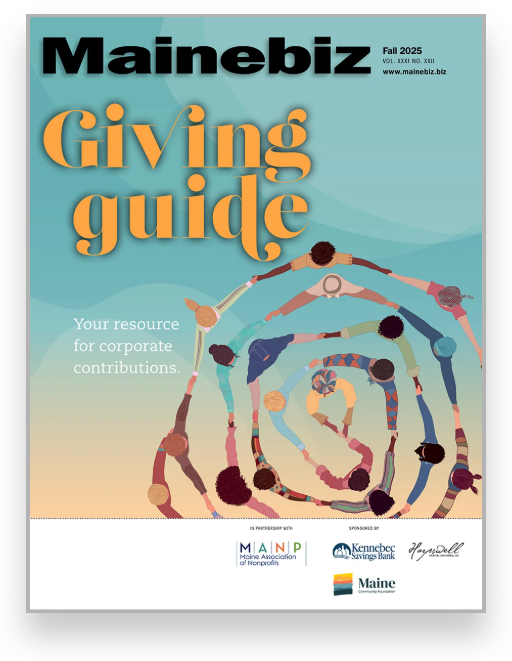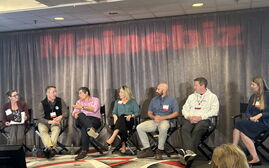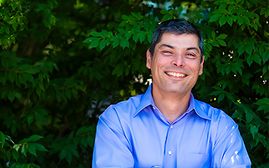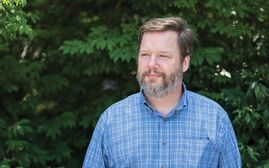Processing Your Payment
Please do not leave this page until complete. This can take a few moments.
- News
-
Editions
View Digital Editions
Biweekly Issues
- November 03, 2025
- October 20, 2025
- October 6, 2025
- September 22, 2025
- September 8, 2025
- August 25, 2025
- + More
Special Editions
- Lists
- Viewpoints
- Our Events
- Calendar
- Biz Marketplace
On the Record: In the broadband business and in the broader world, Kerem Durdag is all about access
 Photo / Jim Neuger
Kerem Durdag, an executive at GWI, says the Biddeford-based broadband carrier is focused on affordability, net neutrality, open access, data privacy and digital inclusion.
Photo / Jim Neuger
Kerem Durdag, an executive at GWI, says the Biddeford-based broadband carrier is focused on affordability, net neutrality, open access, data privacy and digital inclusion.
Kerem Durdag wears many hats in business, including president and chief operating officer of Biddeford-based broadband carrier GWI. He is also a member of the Maine Angels, a group of accredited private equity investors who invest in and mentor early-stage companies. Recently, the Turkish-Pakistani-American launched the Indus Fund, a community-supported microloan program for Maine’s immigrant community.
Mainebiz: What inspired you to start the Indus Fund, and what are the goals?
Kerem Durdag: I saw, and still see, firsthand institutional myopia, xenophobia and racism when it comes to lending practices. If we want to stitch the fabric of society together and allow a pathway to creating intergenerational wealth that is equitable for all, we have to use one of the longest and most powerful levers of economic development: the banking industry. I want to eliminate lending ‘redlining’ by partnering with my peers and colleagues in the banking industry to evolve how we approach lending to the immigrant community.
The goals of the Indus Fund are to partner with banks to provide them the funds to underwrite and provide below market-rate microloans to immigrant businesses and nonprofits so that they can grow their enterprise or organization, while the banks learn and get comfortable with best practices. And in doing so, the immigrant business owner betters his/her credit score, participates in vibrant and vital networks, receives mentorship if desired and becomes part of the conversation of what it means to be a functional participatory democratic society.
MB: Longer term, what can be done to help more immigrants access loans?
KD: The goal is to have lending practices that don’t have hurdles based on fear, but an outreach that is fundamentally anchored in society being equal. You can’t be an equitable society if the social contract is dysfunctional.
MB: What triggered your deep interest in creating a more inclusive world?
KD: I suspect it is part of my DNA. I am a Turkish-Pakistani-American who won the lottery of life. All those languages, songs, football and cricket, poetry, belief in the social contract, struggle of just making it from one day to another, the dreams, are my soul. I grew up in a dictatorship and know firsthand what it is to be encaged and bereft of expression. Here in the U.S., I was and sometimes still am on the receiving end of racism and xenophobia. For me, that oxygen to do something is cultural, technological, economic and social equality.
MB: AT GWI, what progress has the company made so far toward its goal of bringing affordable broadband to all of Maine?
KD: GWI has accessed federal and state dollars to build into rural communities and is poised to deploy in scale when significant additional funds by the state are released in the near future. At the same time, we are bringing in private capital to augment and amplify additional networks in additional geographic areas. We are focused on affordability, net neutrality, open access, data privacy and digital inclusion.
MB: And what are the biggest challenges?
KD: Building infrastructure for the next 40 to 60 years will take time, money, expertise and expectation management, because building broadband infrastructure is an intersection of technology, regulations, construction, supply chains, operational excellence, project management, community engagement and consumer empowerment. There is a tectonic societal demand for high-speed affordable broadband by Maine citizens, and we are rising to the challenge.
MB: What lessons from your past entrepreneurial ventures do you still carry with you today?
KD: Be humble, be open to learning, and surround yourself with those who love you and can teach you grace.
MB: Finally, as a member of the Maine Angels, what are your thoughts on increasing investments to BIPOC and immigrant entrepreneurs?
KD: There is hard work ahead. We have to start from the high schools and then move on to colleges, incubators, board rooms and capital providers to change the narrative to one of inclusion. We must lean in, be intentional, evolve and make it happen.
Mainebiz web partners
Related Content

The Giving Guide
The Giving Guide helps nonprofits have the opportunity to showcase and differentiate their organizations so that businesses better understand how they can contribute to a nonprofit’s mission and work.
Learn More
Work for ME
Work for ME is a workforce development tool to help Maine’s employers target Maine’s emerging workforce. Work for ME highlights each industry, its impact on Maine’s economy, the jobs available to entry-level workers, the training and education needed to get a career started.
Learn More
Groundbreaking Maine
Whether you’re a developer, financer, architect, or industry enthusiast, Groundbreaking Maine is crafted to be your go-to source for valuable insights in Maine’s real estate and construction community.
Learn more-
The Giving Guide
The Giving Guide helps nonprofits have the opportunity to showcase and differentiate their organizations so that businesses better understand how they can contribute to a nonprofit’s mission and work.
-
Work for ME
Work for ME is a workforce development tool to help Maine’s employers target Maine’s emerging workforce. Work for ME highlights each industry, its impact on Maine’s economy, the jobs available to entry-level workers, the training and education needed to get a career started.
-
Groundbreaking Maine
Whether you’re a developer, financer, architect, or industry enthusiast, Groundbreaking Maine is crafted to be your go-to source for valuable insights in Maine’s real estate and construction community.
ABOUT
NEW ENGLAND BUSINESS MEDIA SITES
No articles left
Get access now
In order to use this feature, we need some information from you. You can also login or register for a free account.
By clicking submit you are agreeing to our cookie usage and Privacy Policy
Already have an account? Login
Already have an account? Login
Want to create an account? Register
Get access now
In order to use this feature, we need some information from you. You can also login or register for a free account.
By clicking submit you are agreeing to our cookie usage and Privacy Policy
Already have an account? Login
Already have an account? Login
Want to create an account? Register









0 Comments